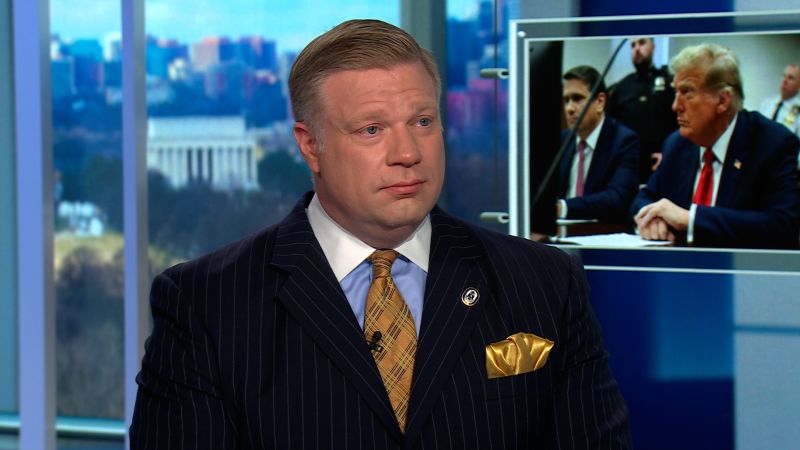Parlatore believes that if prosecutors bring up Trump’s legal past during his hush money criminal trial, it could potentially backfire on them. He suggests that focusing on Trump’s past legal issues might not be relevant to the charges at hand and could give the defense an opportunity to shift the narrative in their favor. Parlatore believes that the prosecutors should focus on the evidence related to the hush money payments and not bring up unrelated legal matters that could complicate the case.
Parlatore also discusses whether he thinks Trump should testify in the trial. He believes that as a former president, Trump would be under intense scrutiny if he were to take the stand, and any misstep or perceived dishonesty could harm his image. Parlatore advises that Trump should weigh the risks and benefits of testifying carefully and make a decision based on what is in his best interests. Ultimately, he suggests that Trump should take the advice of his legal team when making this decision.
The hush money criminal trial in question involves payments made to two women who claimed to have had affairs with Trump, which he denies. The charges focus on whether the payments constituted illegal campaign contributions and if Trump violated campaign finance laws by directing the payments. Parlatore emphasizes the importance of focusing on the evidence related to these payments rather than bringing up Trump’s broader legal history, which he believes could distract from the core issues of the case.
Parlatore also touches on the potential political implications of Trump’s legal troubles. He acknowledges that any criminal conviction of a former president would be unprecedented and could have significant ramifications on American politics. However, he believes that the focus should remain on the legal aspects of the case and not be clouded by political considerations. Parlatore stresses the need for a fair and impartial trial that focuses on the evidence and the legal arguments presented by both sides.
In discussing Trump’s legal past, Parlatore mentions the ongoing investigations into Trump’s business dealings and financial transactions. He notes that these investigations could potentially lead to additional legal troubles for the former president and could influence his decision-making in the hush money trial. Parlatore suggests that Trump’s legal team will need to carefully navigate these investigations and ensure that they do not have a negative impact on his defense in the criminal trial.
Overall, Parlatore provides insight into the potential consequences of prosecutors bringing up Trump’s legal past in his hush money criminal trial. He advises that focusing on the evidence related to the hush money payments and avoiding distractions from Trump’s broader legal history is crucial for a successful prosecution. Additionally, he offers guidance on whether Trump should testify in the trial and emphasizes the need for a fair and impartial legal process that is not influenced by political considerations. Parlatore’s analysis sheds light on the complexities and challenges surrounding Trump’s legal troubles and the potential implications for his future.


